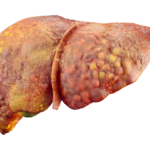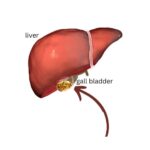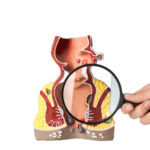
Fever is one of the most common health issues that people experience at some point in their lives. While often alarming, fever is typically a sign that the body is fighting an infection or other illness. Understanding the causes, symptoms, and management of fever can help you respond appropriately when it occurs.
What is Fever?
A fever is defined as a temporary increase in body temperature, often due to an illness. For adults, a fever is generally considered to be a body temperature of 100.4°F (38°C) or higher. It is the body’s natural response to infections and other conditions, acting as a defense mechanism to help the immune system fight off invaders like bacteria and viruses.
Causes of Fever
Fever can be caused by a variety of factors, including:
- Infections: The most common cause of fever is an infection, such as the flu, a cold, or pneumonia. Bacterial and viral infections trigger an immune response, leading to an increase in body temperature.
- Inflammatory Conditions: Conditions such as rheumatoid arthritis and inflammatory bowel disease can cause fever as part of an inflammatory response.
- Heat Exhaustion: Prolonged exposure to high temperatures can lead to heat exhaustion, resulting in fever.
- Medications: Certain medications, such as antibiotics and drugs used to treat high blood pressure or seizures, can cause fever as a side effect.
- Vaccines: Some people may develop a mild fever after receiving a vaccination.
- Other Medical Conditions: Fever can also be a symptom of more serious conditions, such as cancer or autoimmune diseases.
Symptoms Associated with Fever
In addition to an elevated body temperature, fever can be accompanied by various other symptoms, including:
- Sweating
- Chills and shivering
- Headache
- Muscle aches
- Loss of appetite
- Dehydration
- Weakness
When to Seek Medical Attention
While most fevers can be managed at home, certain situations require medical attention. You should seek medical care if:
- The fever is above 103°F (39.4°C).
- The fever lasts more than three days.
- The fever is accompanied by severe headache, rash, sensitivity to light, stiff neck, persistent vomiting, or chest pain.
- You have an underlying health condition that weakens your immune system.
- An infant younger than three months has a fever.
Managing Fever at Home
For most fevers, home care is sufficient. Here are some tips to help manage fever:
- Stay Hydrated: Drink plenty of fluids to prevent dehydration. Water, herbal teas, and clear broths are good options.
- Rest: Allow your body to rest and recover. Avoid strenuous activities and get plenty of sleep.
- Medication: Over-the-counter medications like acetaminophen (Tylenol) or ibuprofen (Advil) can help reduce fever and alleviate discomfort. Always follow the recommended dosage and consult with a healthcare professional if you have any concerns.
- Cool Compresses: Applying a cool, damp cloth to your forehead can help bring down your body temperature.
- Light Clothing: Wear lightweight clothing and use a light blanket to stay comfortable.
- Temperature Control: Keep your environment cool. Use a fan or air conditioning to maintain a comfortable room temperature.
BEST MEDICINE FOR FEVER IN HOMEPETHY .
- Aconitum Napellus (Aconite)
- Indications: Sudden onset of fever, often after exposure to cold wind or a shock. Symptoms may include restlessness, anxiety, and thirst.
- Dosage: Typically, 30C potency, taken every few hours until symptoms improve.
- Belladonna
- Indications: High fever with a sudden onset, often accompanied by a red, flushed face, dilated pupils, and a throbbing headache. The patient may feel hot to the touch and experience sensitivity to light and noise.
- Dosage: 30C potency, taken every few hours as needed.
- Ferrum Phosphoricum (Ferrum Phos)
- Indications: Fever in the early stages of an infection, with mild symptoms such as a moderate increase in temperature, fatigue, and weakness. The patient may also experience a flushed face and mild sweating.
- Dosage: 6X or 12X potency, taken several times a day.
- Gelsemium
- Indications: Fever accompanied by great weakness, drowsiness, and heaviness. The patient may feel achy and experience chills running up and down the spine. There might also be a lack of thirst.
- Dosage: 30C potency, taken every few hours until symptoms improve.
- Eupatorium Perfoliatum
- Indications: Fever with intense body aches and deep bone pain. The patient may feel restless and irritable, and experience chills followed by heat. Symptoms often worsen with movement.
- Dosage: 30C potency, taken every few hours as needed.
- Rhus Toxicodendron (Rhus Tox)
- Indications: Fever with restlessness and aching muscles, especially after getting wet or chilled. Symptoms improve with movement and warmth.
- Dosage: 30C potency, taken every few hours until improvement.
- Bryonia Alba
- Indications: Fever with intense thirst, dryness of mucous membranes, and a desire to lie still. The patient may have a headache and feel worse with any movement.
- Dosage: 30C potency, taken every few hours as needed.
- Guidelines for Using Homeopathic Remedies
- Potency: 30C potency is commonly used for acute conditions like fever. Lower potencies like 6X or 12X can also be effective, especially for children or more sensitive individuals.
- Frequency: Homeopathic remedies can be taken every 2-4 hours during the acute phase of the fever. As symptoms improve, the frequency can be reduced.
























































































I love your blog.. very nice colors & theme. Did you create this website yourself? Plz reply back as I’m looking to create my own blog and would like to know wheere u got this from. thanks
YES
WHAT ICAN HELP YOU
Valuable info. Lucky me I found your website by accident, and I am shocked why this accident did not happened earlier! I bookmarked it.